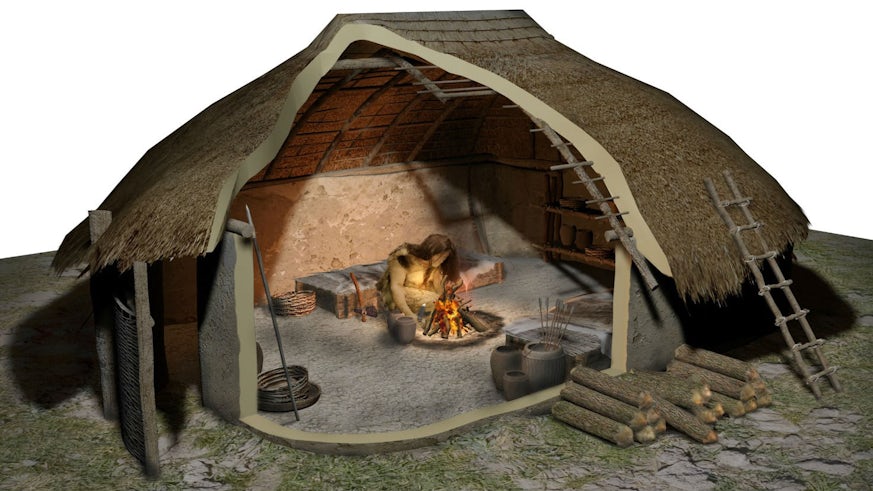Workshops to give people a real taste of cooking, the Neolithic way
9 February 2018

Archaeologists from Cardiff University are collaborating with colleagues from the University of York and English Heritage to explore the food consumed by the masses who constructed the world heritage site, Stonehenge.
Funded by the Arts and Humanities Research Council, Consuming Prehistory will give people a taste of the recent findings about our ancestors’ food preparation and consumption which have been unearthed in the Feeding Stonehenge Project.
Consuming Prehistory complements the FEAST! exhibition at the Stonehenge Visitor Centre, and will allow the public to consider and explore:
- What did our Neolithic ancestors actually eat, and how did they prepare and cook?
- Just how far did people travel to build or to gather at Stonehenge?
- How did they manage to source food for such large numbers of people?
Opportunities to discover more will be available for all, online and nationwide, at a series of events throughout 2018 – including in the locality of the world heritage site. Participants can expect to discover more about how our prehistoric ancestors at Stonehenge produced, preserved, prepared and presented food. At special workshops, schoolchildren, families, young adults and local community groups will be able to get hands-on with archaeological materials and ancient technologies, and will compare social eating today with life millennia ago, thanks to fascinating, recently discovered evidence. Activities will range from recreating and trialling Neolithic cooking pots to butchering with stone tools. Additionally, people across the globe will be able to access web-based educational resources designed for teaching from key stages two to five as part of the project.
The archaeologists are also developing interactive and tailored workshops to take to UK festivals - the present-day equivalent of mass gatherings at Stonehenge and nearby Durrington Walls - in a winning formula pioneered by Guerilla Archaeology. These will include Lunar Festival (27th-29th July 2018) and The Settlement at Green Man (13th-15th August 2018).
Delivered across the UK by archaeologists, scientists and artists, pop-up collective Guerilla Archaeology has already encouraged thousands of people to engage directly with the discipline at some of the world’s best-known festivals.
Head of Archaeology and Conservation at Cardiff University’s School of History, Archaeology and Religion and creator of Guerilla Archaeology, Dr Jacqui Mulville said: “The appetite for archaeology, and for all things Stonehenge, seems to be insatiable. Recent work has provided fascinating new insights into food and feasting in prehistory. At the same time, initiatives such as Guerrilla Archaeology have shown that people from all walks of life are hungry to learn more about the past and want be actively involved in exploring and interpreting archaeological information.”
She added: “This project is all about creating exciting opportunities for the public to engage with archaeological research. Lucky visitors to Stonehenge will have the opportunity to learn more at special events both at the Stonehenge Visitor Centre, and via food-focused workshops in the local area which will enable groups in the region to get involved with the heritage on their doorsteps. Key is that anyone anywhere online will have access to specially-designed activities, including a prehistoric menu competition.”
Working on the project at Cardiff University, zooarchaeologist and Lecturer in Bioarchaeology Dr Julia Best explains more about what to expect: “Just like today, feasting and food sharing were important for our ancient ancestors. Prehistoric food was not just a bowl of grey, boring gruel. We have evidence for roast pork, cheese products, and probably beef stews. These foods are still very much part of our lives, and we know that they were all consumed in the Neolithic world. In our workshops people of all ages will be able to get hands-on with archaeological animal bones, see for themselves how meat was cooked, and even try cooking prehistoric-style, using the types of utensils to hand thousands of years ago.”
The Consuming Prehistory project culminates at Stonehenge on the 1st-2nd of September 2018 with a special event focussing on feasting. For the latest information including updates on events around the UK, follow the Consuming Prehistory blog.

